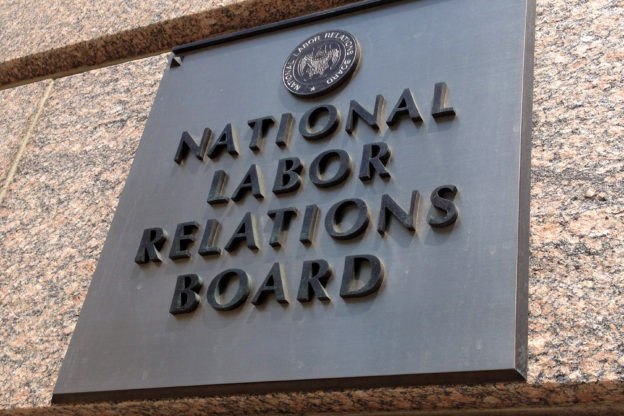
Steven Gutierrez
It should come as no surprise that President Joe Biden’s appointment of Jennifer Abruzzo as General Counsel (GC) of the National Labor Relations Board (NLRB) would effectively shift the NLRB to a prounion majority. Ever since the new Board took control, we’ve advised employers to brace for widespread rollbacks of gains they saw in the traditional labor area under the Trump administration (see “Changing of the guard: NLRB precedent under Biden administration”). In that regard, Abruzzo expressly warned employers she intends to return to the prounion agenda seen during the Obama years.
NLRB analysis of employer handbooks
One of the more controversial shifts by President Barack Obama’s NLRB was its attack on employers’ facially neutral workplace rules. For example, in Chipotle Services LLC, the Board used its 2004 precedent in Lutheran Heritage to invalidate employer rules directing employees to delete social media posts about their wages or other terms or conditions of employment.
The Obama NLRB concluded the employer’s facially neutral workplace rules violated the National Labor Relations Act (NLRA) if an employee could “reasonably construe” them to prohibit the exercise of their NLRA rights (also known as “Section 7 activity”). Under the new standard, the Board focused on a showing of one of the following to invalidate the rules:
- Employees could reasonably construe the policy language to prohibit Section 7 activity;
- The rule at issue was promulgated in response to union activity; or
- The rule was applied to restrict the exercise of Section 7 activity.
During the Trump administration, the NLRB overruled Lutheran Heritage in The Boeing Company, which established a new test: When evaluating a facially neutral policy, rule, or handbook provision that, when reasonably interpreted, would potentially interfere with the exercise of NLRA rights, the Board will evaluate two things: (1) the nature and extent of the potential impact on the NLRA rights and (2) legitimate justifications associated with the rule.
Under the new balancing test, employers’ facially neutral policies were far less likely to be invalidated. As a result, they began to have more flexibility in implementing broader workplace policies.
Backpedaling under Biden administration
In August 2021, Abruzzo issued GC Memorandum 21-04 (her first) in which she articulated, among other things, a desire to address the “numerous adjustments to the law” the Trump Board made, including “doctrinal shifts” that overruled “legal precedents which struck an appropriate balance between the rights of workers and the obligations of unions and employers.”
Abruzzo specifically noted “employer handbook rules” were an area for the NLRB to target. In addition, she singled out cases involving the application of Wynn Las Vegas, LLC, which was related to employee solicitation activities in the workplace.
Under current Board, neutral solicitation policies at risk
The Wynn Las Vegas opinion, issued on May 29, 2020, was a critical decision overruling two other cases and defining “solicitation” in a manner consistent with previous NLRB rulings and the dictionary definition of the term. The casino employer maintained a policy prohibiting all employee solicitation “in work areas during the work time” for either the initiating or the solicited worker.
In essence, the court found solicitation can occur when “an employee makes statements to a coworker during working time that are intended and understood as an effort to persuade the employee to vote a particular way in a union election.” As a result, under Wynn Las Vegas, an employer may discipline the employee if it has a “validly enacted and applied no-solicitation policy.”
The Wynn Las Vegas decision was championed as a commonsense approach to defining solicitation, but its impact will face immense pressure under the current NLRB, same as for facially neutral employment policies under The Boeing Company standard. In addition, employers should be very concerned because Abruzzo’s memo identified other subject matters the Board should revisit:
- Confidentiality provisions in separation agreements;
- What constitutes protected concerted activity;
- The Wright Line burden/test to prove unlawful union animus;
- Union access and union dues;
- Employee status;
- Religious institutions and jurisdiction; and
- Employers’ duties to recognize and bargain with unions.
Takeaways
As the NLRB moves toward restoring Obama-era precedent, you must be ready to make policy updates consistent with the expected changes in the applicable law. As Abruzzo’s own memo clearly shows, the current Board isn’t interested in maintaining the status quo established by the Trump administration.

